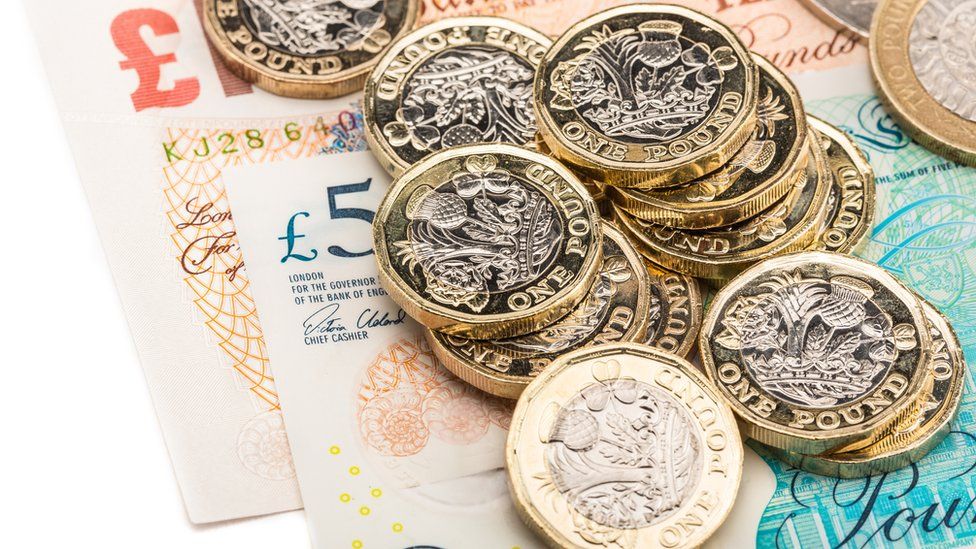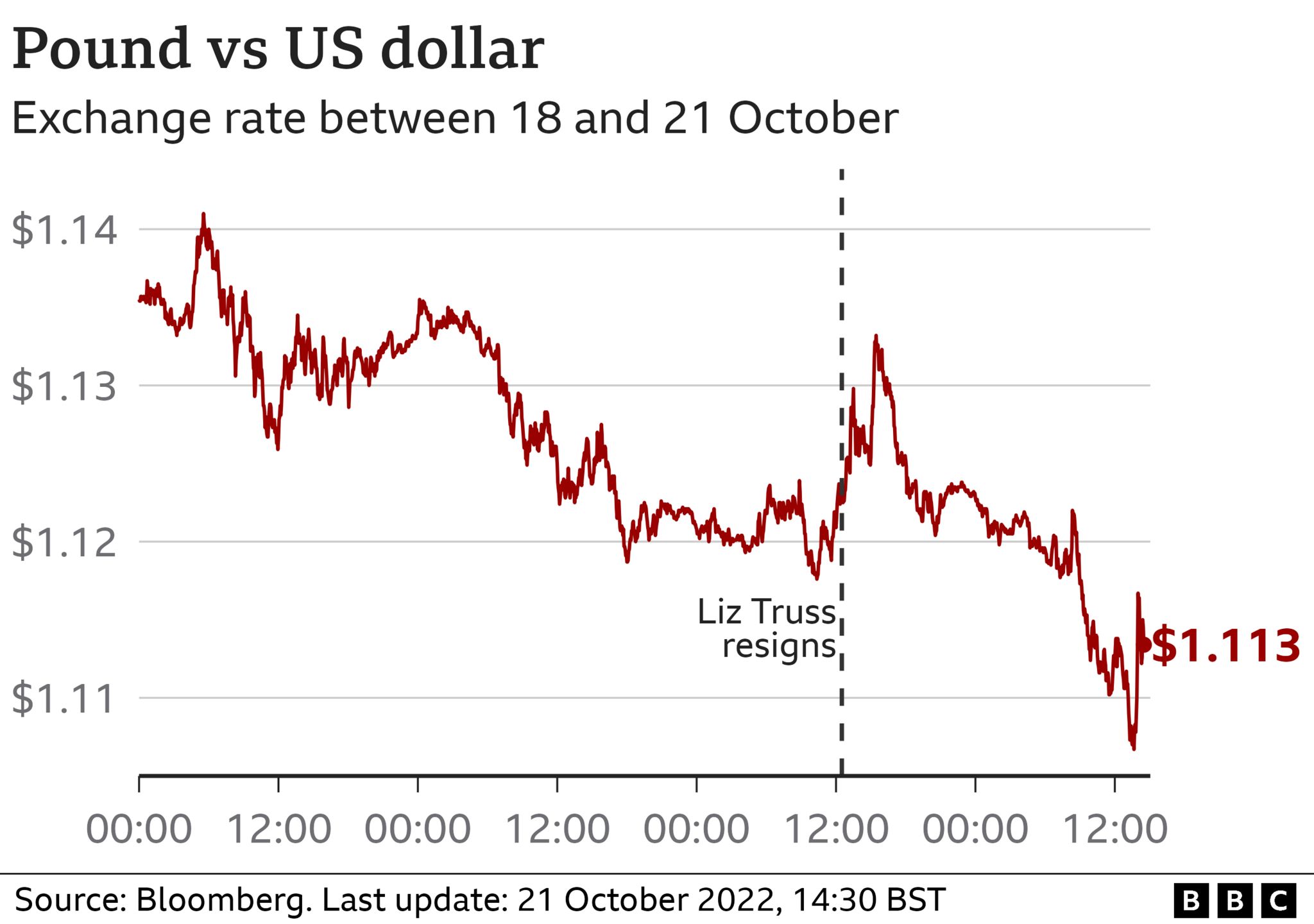The pound fell against the dollar on Friday as new figures showed a gloomy picture for the UK economy.
Sterling slipped to $1.11, after rallying on Thursday as Prime Minister Liz Truss resigned.
However, it clawed back losses on Friday evening and was back up to around $1.12 against the dollar.
The volatility in the pound came after official figures showed government borrowing rose to its second highest September on record.
Meanwhile, people are shopping less than they did before the coronavirus pandemic, according to figures from the Office For National Statistics (ONS).
Retail sales fell by more than expected last month, dropping 1.4% and continuing their slide from August, the official figures showed.
The pound’s latest slide comes after a period of volatile trading for the currency.
It plunged to a record low against the dollar last month, while government borrowing costs rose sharply in the aftermath of the mini-budget. Investors were spooked after the government promised huge tax cuts without saying how it would pay for them.
Government borrowing costs also rose slightly on Friday.
A fall in the US dollar against a number of currencies late Friday helped the pound regain some ground.
But Jane Foley, a currency strategist at Rabobank, said much of the pound’s moves are being driven by investors reacting to political and economic uncertainty in the UK as well as the negative economic data.
“While sterling rallied yesterday on Truss’s resignation, I think investors have realised today that it’s not a guarantee that we’ll get a market-friendly outcome from the Conservative leadership contest,” she said.
The Chancellor, Jeremy Hunt is due to announce plans for spending and tax on 31 October in his economic plan, which the Treasury confirmed was set to go ahead, although there are reports it could be delayed due to the leadership race.
Ms Foley said this uncertainty was also weighing on the pound.
“The longer the uncertainty continues, the worse it’s going to be for the markets.”
Why does a falling pound matter?
A fall in the value of the pound increases the price of goods and services imported into the UK from overseas – because when the pound is weak against the dollar or euro, for example, it costs more for companies in the UK to buy things such as food, raw materials or parts from abroad.
A weaker pound can push rising costs higher as well if companies choose to pass on higher prices to customers. For people planning a trip overseas, changes in the pound affect how far their money will go abroad.


Over half of Lebanon’s GDP comes from remittances, report says
Of those households, 32 per cent reported that without remittances, they could not cover expenses. Forty-one per cent told the Mercy Corps, a humanitarian NGO, that they could not cover most basic needs without financial help from abroad. Households receive...
Cuyahoga County approves $5 million innovation fund with Cleveland Foundation to stop overdose deaths, as guided by forthcoming advisory committee
Cuyahoga County Council on Tuesday voted to turn over $5 million to the Cleveland Foundation to fund innovative solutions to the county’s opioid epidemic. What those new strategies will be or how much money they receive will largely be up to a 9-member advisory...
Ohio couple, both 100 years old and married 79 years, die just hours apart
A Butler County man and woman who spent most of their lives together, married for 79 years, ended up dying just hours apart last week. Frances June and William "Hubert" Malicote both were 100 years old when they died, according to their obituaries. Hubert Malicote...
Submit your event
We will be happy to share your events. Please email us the details and pictures at publish@profilenewsohio.com
Address
P.O. Box: 311001 Independance, Ohio, 44131
Call Us
+1 (216) 269 3272
Email Us
Publish@profilenewsohio.com

